When you meet someone new, there are always things you like, and let’s be honest, some things you don’t. But sometimes, those “green flags” shine so brightly that you decide this is the person you want to spend the rest of your life with. But what happens when you realize that the very reason you chose to marry someone was built on a lie?
A man recently shared his story, reflecting on how a discovery years into his marriage turned his world upside down. Keep reading to uncover how he navigates the painful truth behind what he thought was a “green flag.”
Trust is the foundation of any strong relationship, and once it’s broken, no matter when, it inevitably has consequences

Image credits: unsplash (not the actual photo)
A man shared how a green flag he once admired in his wife turned out to be built on a lie, leaving him to question the foundation of their relationship
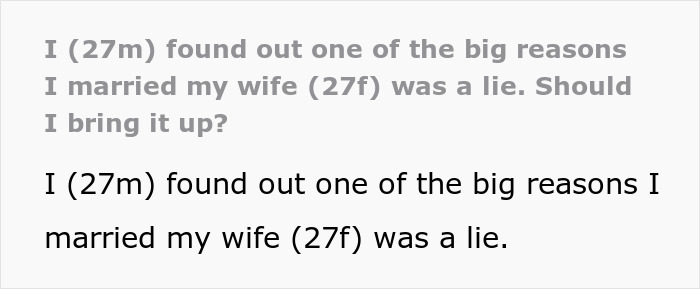
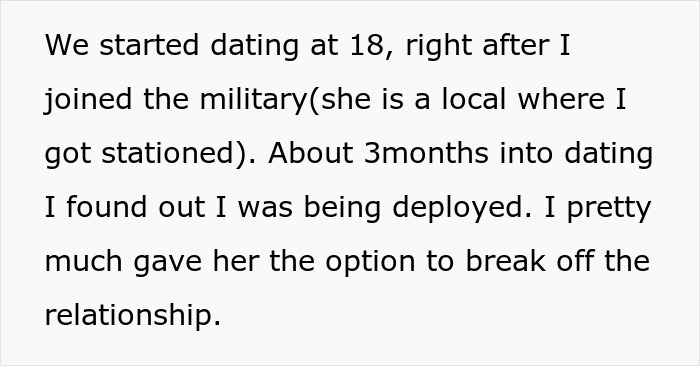
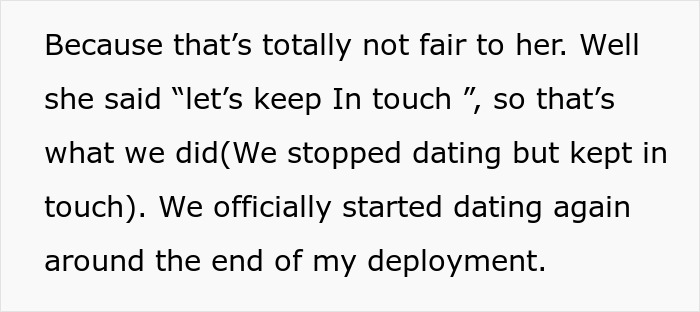
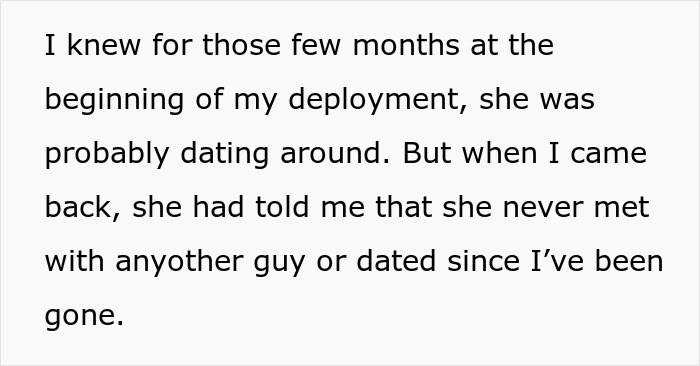
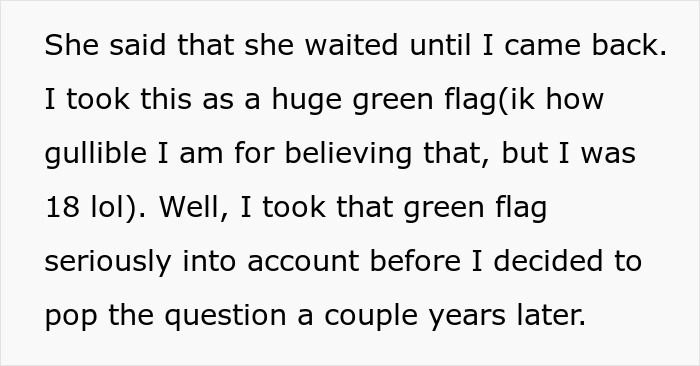


Image credits: freepik (not the actual photo)
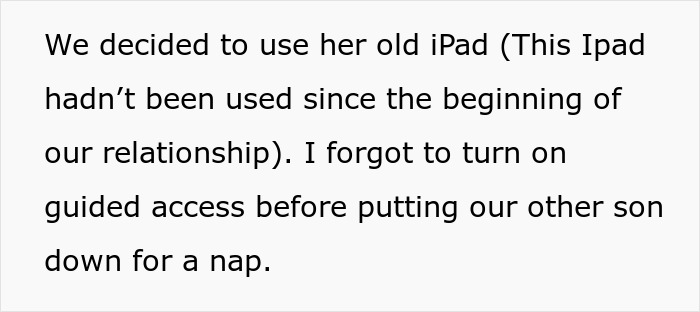
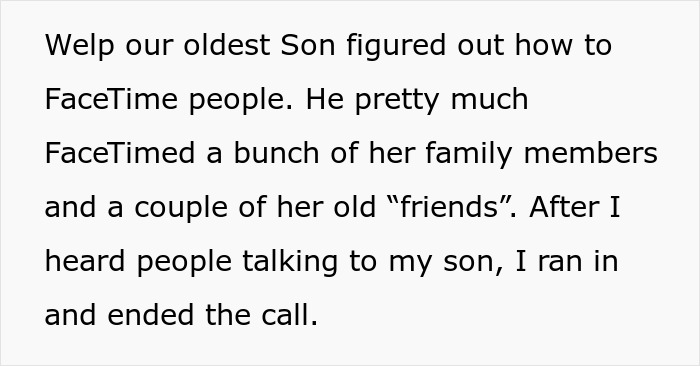
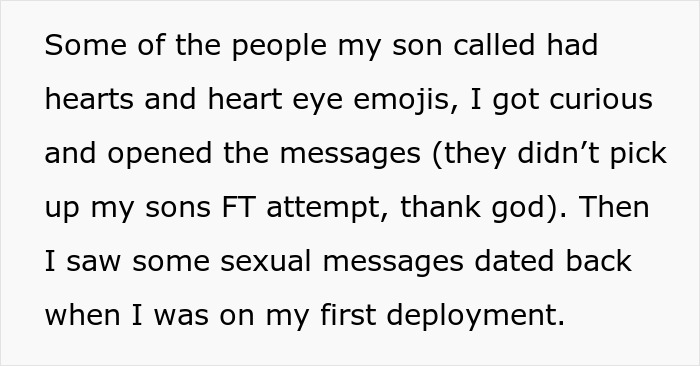
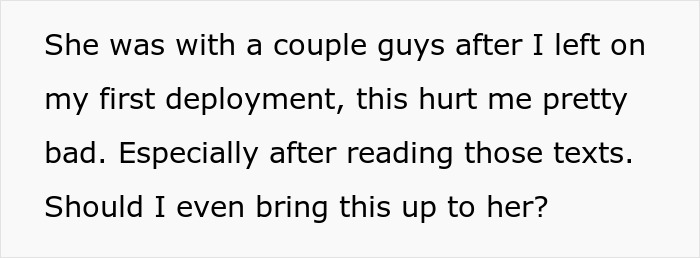


Image credits: Electronic-Test-9836
Many people felt that OP’s wife wasn’t truly at fault, especially considering how young she was at the time
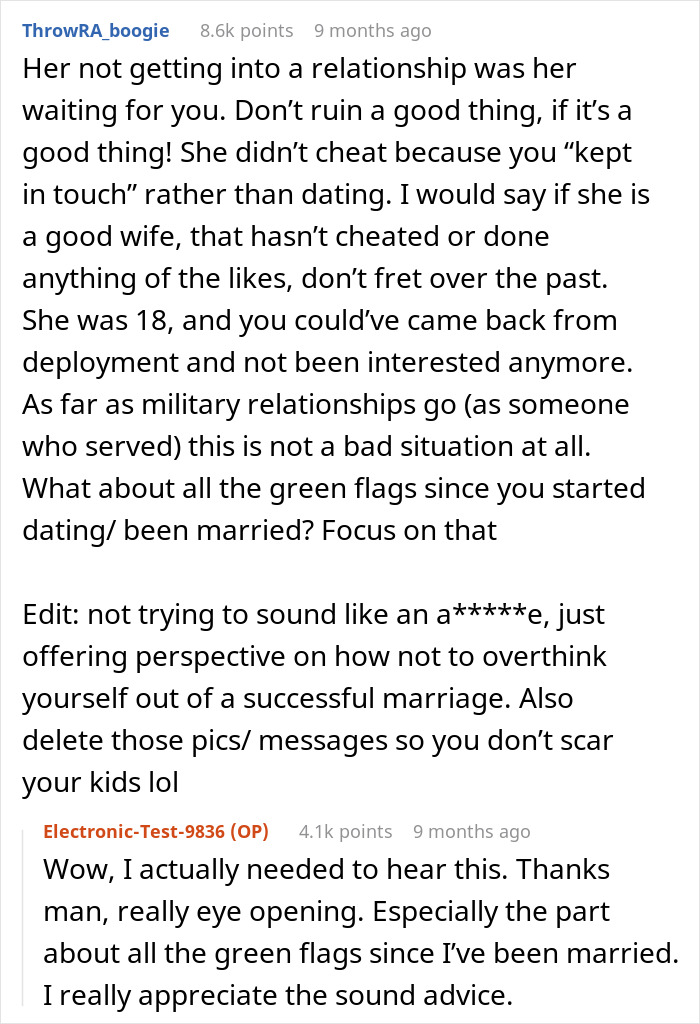

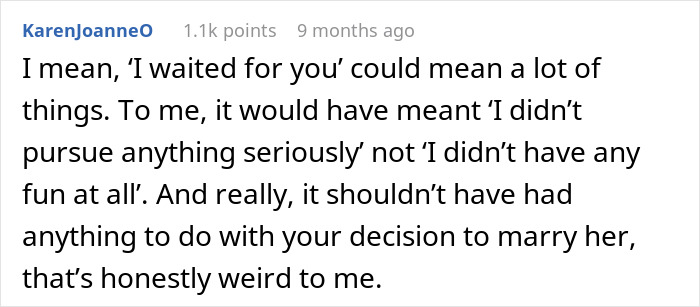



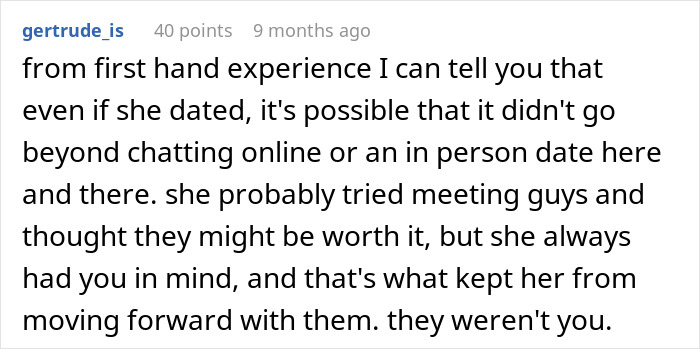
Others suggested that if the situation is bothering him, he should have an open and honest conversation with his wife
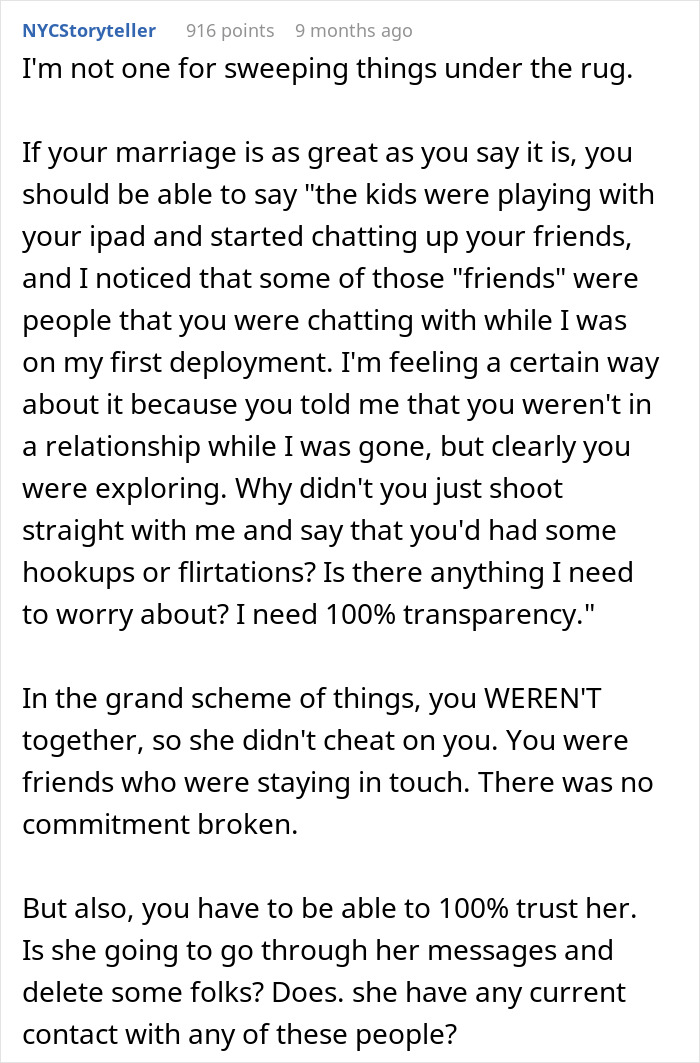
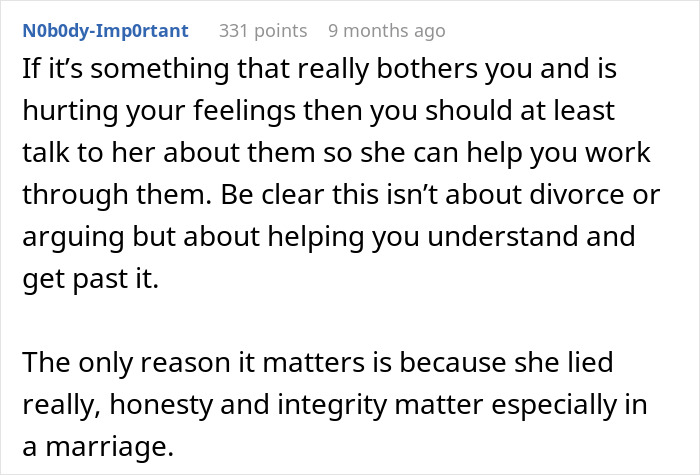
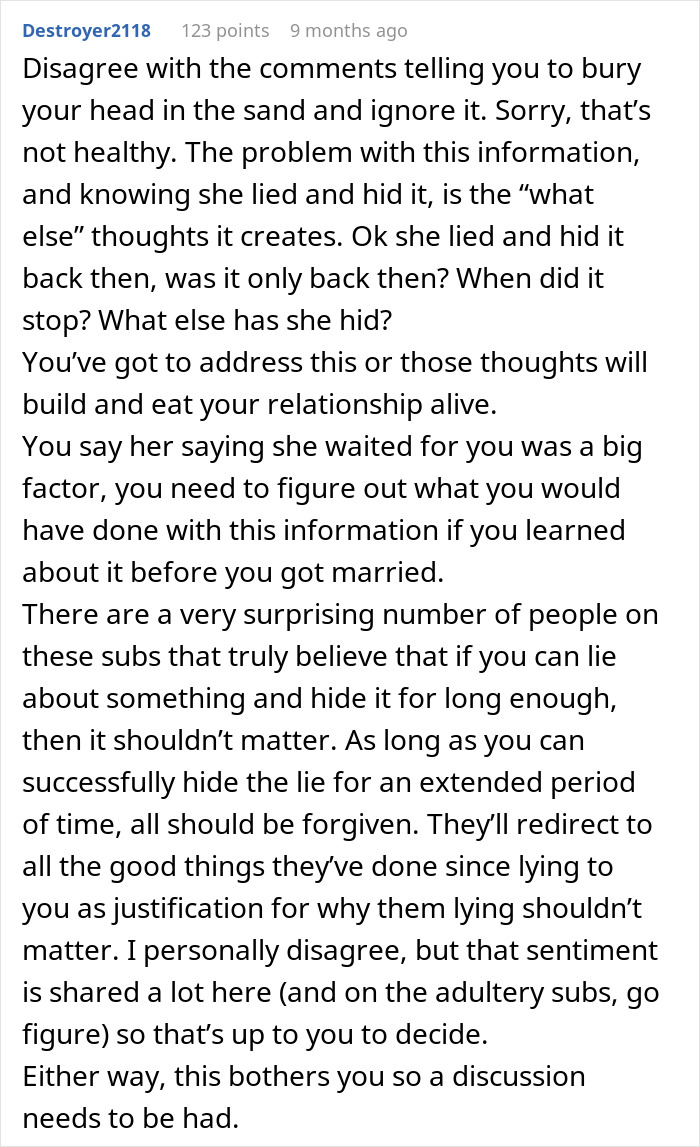
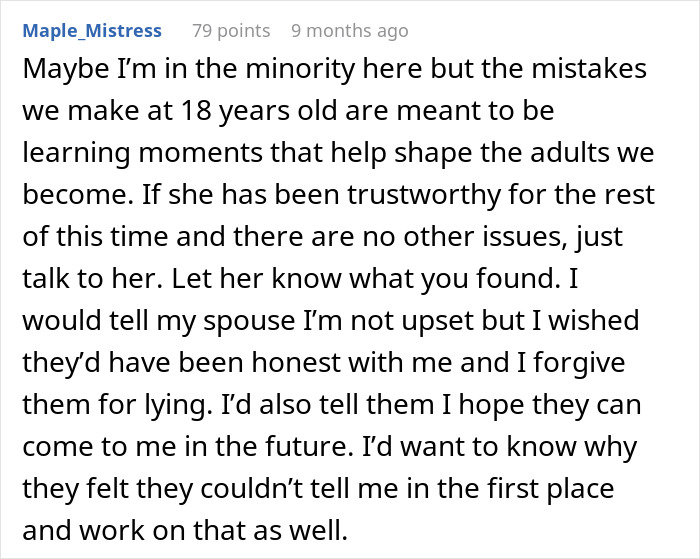
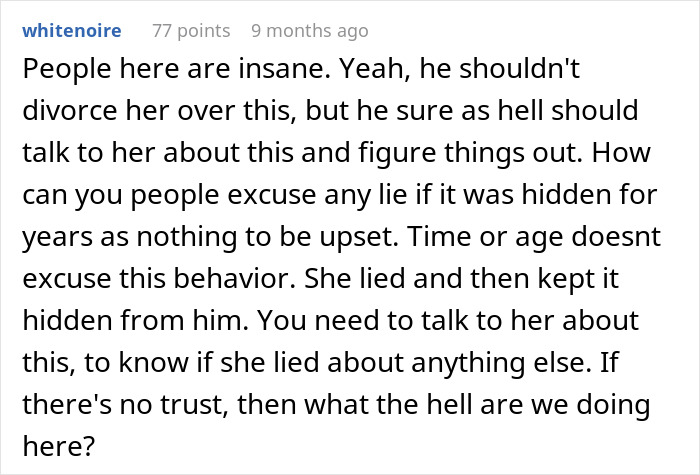
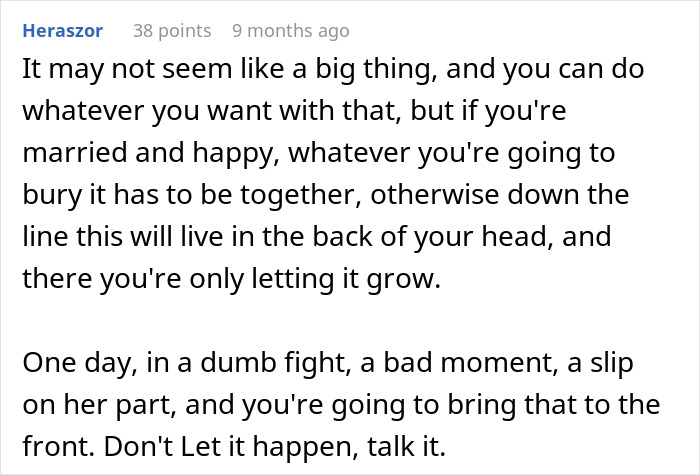
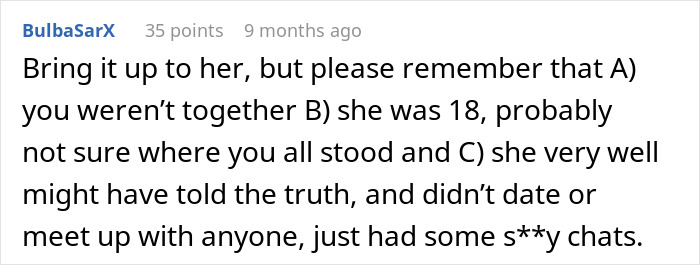
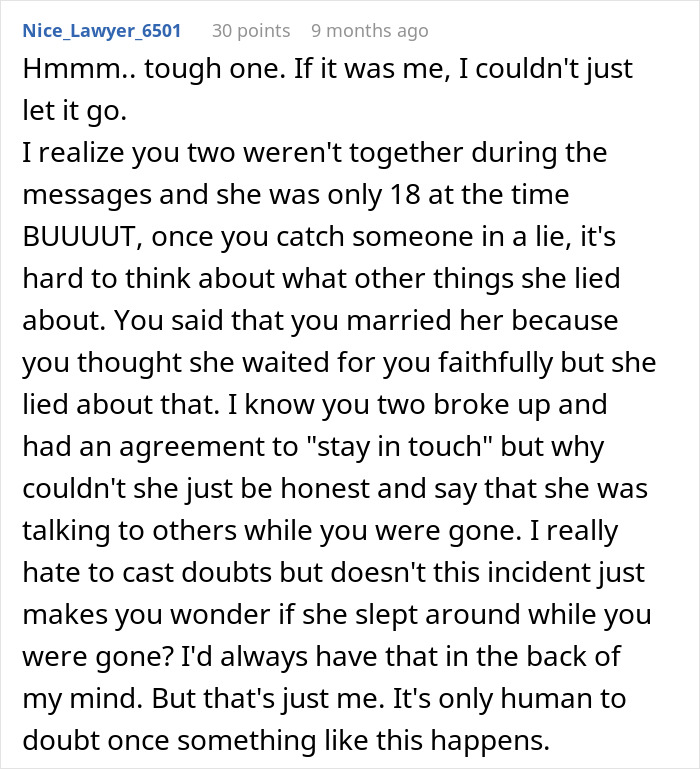
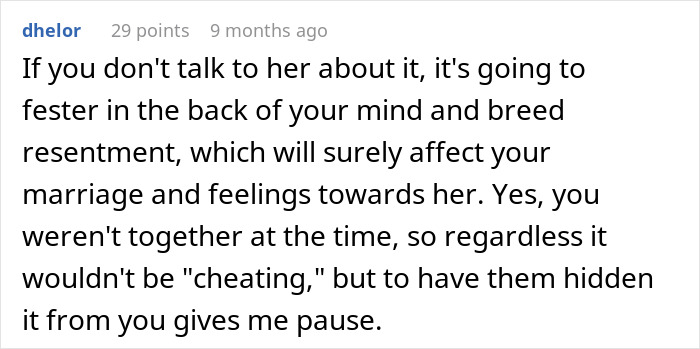
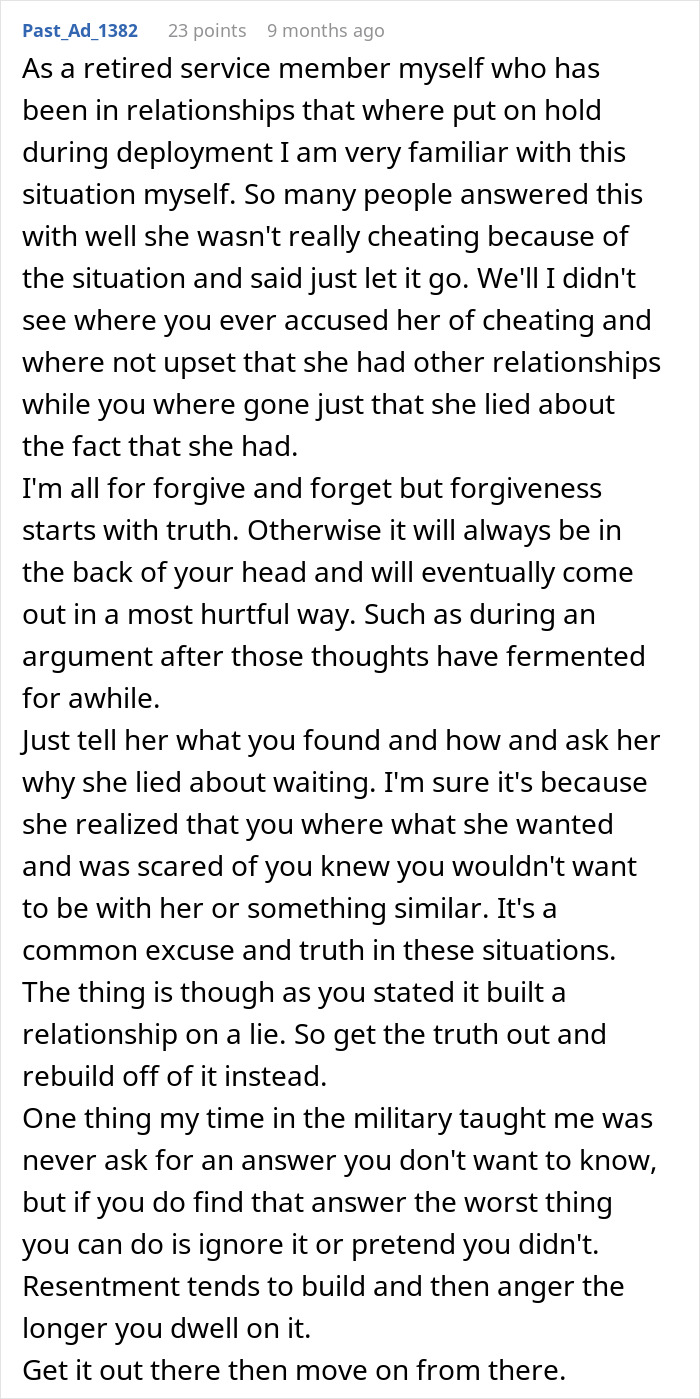
One commenter even raised a thoughtful question about the entire situation, hoping to understand more


Lying to impress your partner might seem harmless at first, but it can backfire and damage the relationship in the long run

Image credits: freepik (not the actual photo)
When you first start dating someone, it’s natural to want to put your best foot forward. You might find yourself going the extra mile to impress them, wearing your favorite outfit, showcasing your most interesting hobbies, or casually dropping impressive tidbits about yourself. It’s all about making a memorable first impression and standing out. But sometimes, these efforts to shine can include little white lies or exaggerated truths. After all, who doesn’t want to be seen in the best light by someone they’re smitten with?
Erving Goffman, in the study, The Truth About Lying in Online Dating Profiles, points out how self-presentation is often a blend of truth and a dash of fiction. According to Goffman, it’s part of human nature to create a polished version of ourselves; it’s just how social interactions work. But, this idealization can sometimes blur the lines of honesty.
Sure, a little fib here or there might seem harmless at first. But what happens when the lies start to snowball? Imagine claiming to love skydiving just to impress someone who’s an adventure j****e. Fast forward a few months, and you’re stuck at the top of a bungee jump platform, secretly wishing you’d just said, “Nope, I prefer my thrills on Netflix.”
Relationships thrive on trust and understanding. Yet studies reveal that lying to a partner happens more often than we’d like to admit. These lies usually fall into two categories: self-focused (to boost our own image) or other-focused (to protect our partner’s feelings).
A self-focused lie might sound harmless, like saying, “I’m fluent in French” when all you know is how to order a croissant. These lies are often about making yourself look more appealing or impressive. They might seem like tiny, inconsequential tweaks at the time, but they can create a web of false impressions.
Down the line, the person you’re dating might feel misled, especially if they were drawn to qualities or experiences you don’t actually have. Think about it: how would you feel if someone you admired for their passion for hiking admitted they’d only ever walked to the corner store?
Other-focused lies are usually told with good intentions. For instance, you might reassure your partner with, “Of course, I love your cooking,” even if their “signature” dish tastes like burnt cardboard. These lies are meant to protect your partner’s feelings or avoid unnecessary conflict. While they seem like acts of kindness, they can lead to bigger misunderstandings. Over time, these little deceptions might leave your partner feeling patronized or unsure of what’s real and what’s just sugarcoating.
Sometimes, people tell lies to shield their partners from being hurt, believing it’s for the greater good

Image credits: unsplash (not the actual photo)
Then there’s the “better off not knowing” category of lies. These can be tricky, as they often come from a place of wanting to shield your partner from pain. Imagine someone hiding a friendship with an ex or a secret about a lost job because they don’t want to cause stress.
The problem is, these omissions can backfire. Once the truth surfaces, and it usually does, your partner might feel more hurt by the secrecy than the original issue. It’s like withholding a storm warning: sure, you spare them a few hours of worry, but when the storm hits without warning, the damage is far worse.
Trust and honesty are the bedrock of any lasting relationship. So, finding the balance between putting your best foot forward and staying true to yourself is key to building something real. Authenticity might not always be flashy, but it’s what keeps relationships grounded.
In this case, the author felt deeply betrayed, realizing that what he thought was a solid foundation was built on shaky ground. What would you do if you found out your relationship started with a lie? Tell us in the comments!
The author later clarified some details and shared that he had already spoken to his wife in an effort to resolve things









